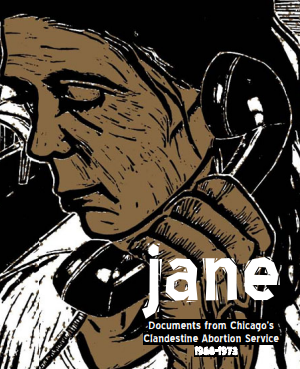The overturn of Roe v Wade (1973) (and Planned Parenthood v Casey 1992) in the US makes this history and text about the provision of clandestine illegal abortions extremely relevant today. The illegality of abortion in the majority of US states prior to 1973 meant that women were forced to seek abortions which due to the illegality meant not only was there a danger of prosecution both for those seeking and those performing abortions which were also under unsafe conditions.
Women die due to the illegality of abortion. Abortion bans never stop those seeking abortions, they just make them dangerous for women that are going to get them both due to unsanitary conditions and the criminal nature of the situation. The deaths of women due to illegal abortions demonstrate that the governments and societies are far more interested in controlling women’s reproduction and undermining their bodily autonomy than they are concerned with women’s lives.

The vicious attack on the national legality of abortion by the upcoming overturn of Roe v Wade means that women’s reproductive decisions are to be subsumed by religious and far-right beliefs. The obsession of these people with the “rights of the foetus” is quickly forgotten once these foetuses are born. Invariably, the same people that are so consumed by foetal fetishism are the same ones that also oppose welfare benefits and the provision of free healthcare for both mothers and children in the US.
There are differences today compared to back when this piece was written. Access to abortifacient pills means that women are no longer dependent upon surgical abortions. This means that what is already a safe procedure when done legally, could now be done at home either using telehealth or getting the pills from their doctors which gave women far more control over their reproductive choices. That is why following the pandemic, many states controlled by right-wing anti-choice Republicans made laws that prevented abortion pills from being easily accessible through telehealth services (e.g., South Dakota) or have reduced access by limiting access to these pills for a shorter period of time (e.g., Texas). Access to abortion pills will probably be even further constrained if Roe Trigger laws come into effect banning abortion in all forms in these states. Some states have banned shipping abortion pills by mail as part of anti-abortion legislation anticipating the overturn of Roe. 26 states in the US are expected to ban abortions in the absence of Roe v Wade.
There already exists a National Network of Abortion Funds which is raising funds to help women across the US by supporting abortion funding in various states to help women living in states with abortion bans and restrictions with travel and costs to states where abortion is legal. But not all women will be able to take off from work and travel and the situation is the worst for women of colour who already had difficulty accessing abortion rights due to the Hyde Amendment. Hopefully, we will never have to go back to these days when a clandestine abortion service had to be provided women to women to ensure that they could access their reproductive rights. Even with supportive and careful abortion providers, women’s lives and liberty were endangered if they sought an illegal abortion. We must stand in solidarity together across countries for reproductive justice and this includes the fight for legal and safe abortions, free at the point of demand.

